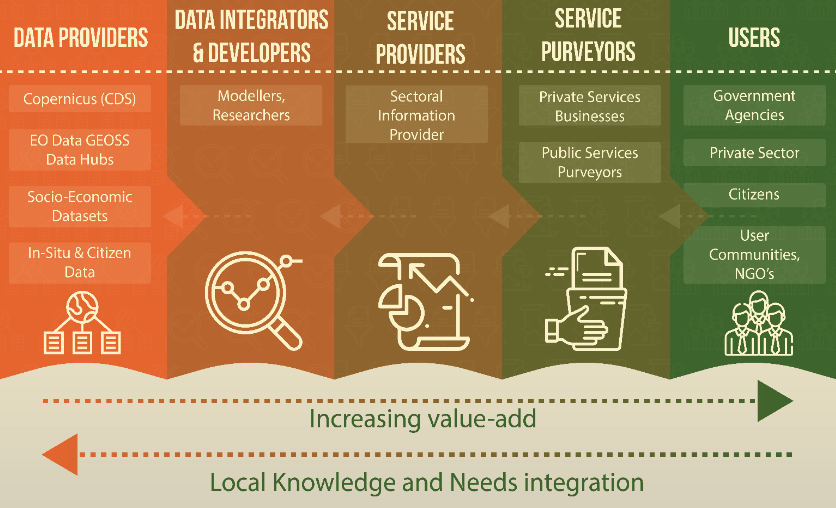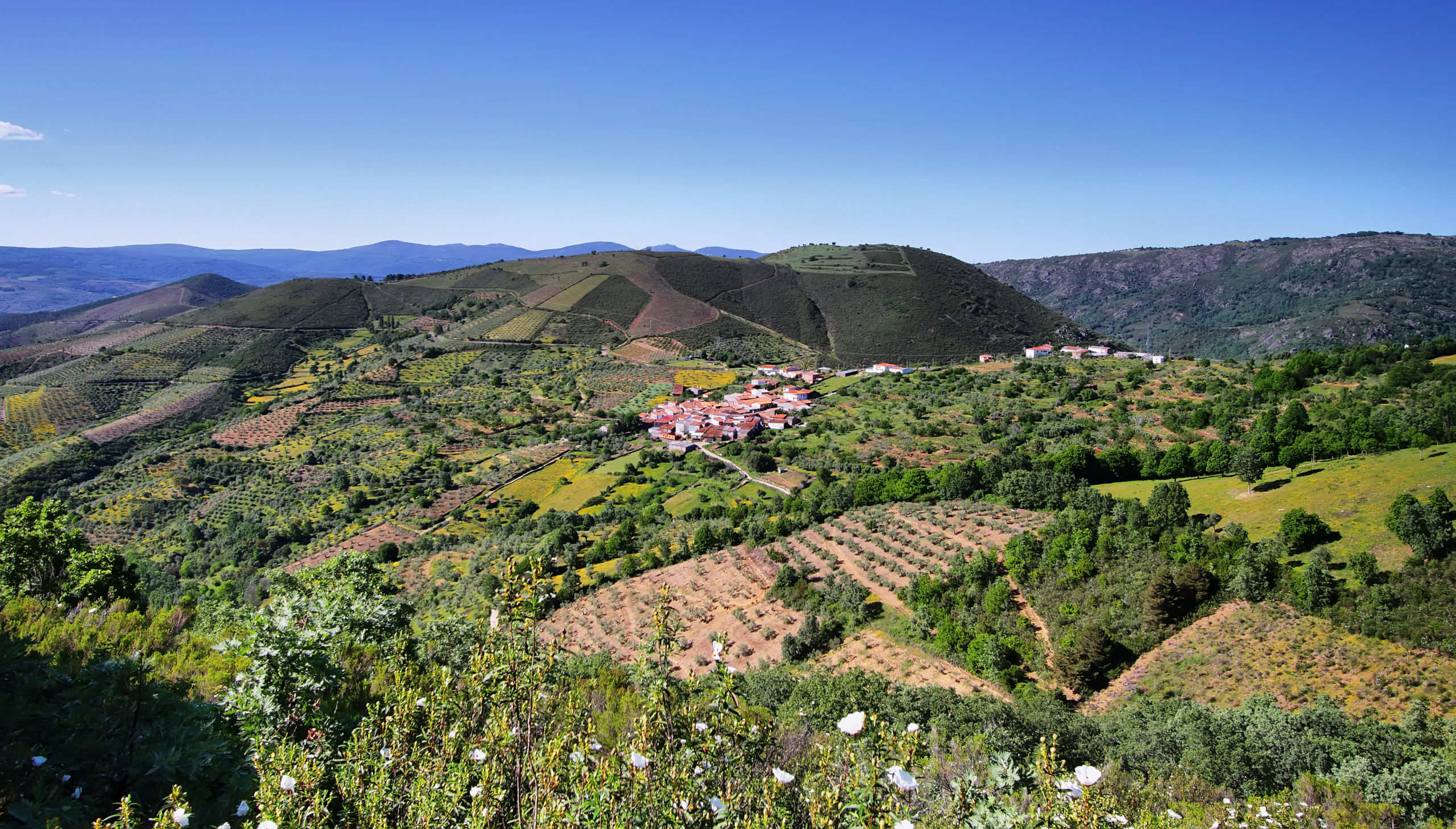Climate change is one of the defining issues of the 21st century, with the climate becoming more variable and severe weather events such as floods, droughts and extreme heat occurring more frequently. Adaptation to climate change requires policy makers, public agencies, businesses and citizens to take climate smart decisions that help reduce the impacts of the extreme events of today and foster resilience to the future climate.
I-CISK’s ambition to innovate how climate information is used, interpreted and acted on through a next-generation of Climate Services that follow a human centred, social and behaviourally informed approach; integrating the knowledges, needs and perceptions of citizens, decision makers and stakeholders with climate information at spatial and temporal scale relevant to them.
Climate Services (CS) are crucial to empowering citizens, stakeholders and decision-makers in taking climate-smart decisions that are informed by a solid scientific evidence base, that contribute towards a sustainable European economy, lifestyle, environmental protection and resource use, and that are resilient to climate change and compatible with achieving climate neutrality. European and international collaborative research efforts, including Copernicus and GEOSS have established a solid scientific foundation for an effective CS value chain, including advanced scientific knowledge, monitoring and modelling of climate change and the impacts of climate extremes. However, several barriers challenge the current generation of CS in achieving the full opportunity of their value-proposition. These challenges include the failure to incorporate the social and behavioural factors and the local knowledge and customs of climate services users. Additionally, the effectiveness of climate services is challenged by; the still poorly developed understanding of the multi-temporal and multi-scalar dimension of climate-related impacts and actions; the translation of CS-provided data into actionable information; consideration of reinforcing or balancing feedback loops associated to users’ decisions; and the lack of trans-disciplinary approaches across the full CS value chain.
I-CISK aims to seize these untaken opportunities through a human-centred framework for co-production of next generation CS that spans the full CS value chain taking the downstream part of the value chain as a starting point. The I-CISK framework realises the full potential of information provided through CS by empowering actors to take the impacts of extreme climatic events and climate change into account in their decisions.

Figure 1: Climate Services Value Chain
I-CISK’s objectives
The main objective of the I-CISK project is to develop next-generation CS that follow a social and behaviourally informed approach for co-producing CS that meet the climate information needs of citizens, decision makers and stakeholders at the spatial and temporal scale relevant to them. Six specific objectives have been formulated:
Objective #1
To develop a framework for co-producing next-generation, human-centred climate services by co-exploring user needs, incorporating social and behavioural factors and integrating local knowledge with scientific data, tailoring climate information based on the adaptation options.
Objective #2
To advance the scientific and technological frontiers of integrating and visualising scientific data from Copernicus and GEOSS, local data sources, citizen science and local knowledge; providing actionable information at a spatial and temporal scale pertinent to user needs, seamlessly bridging from sub-seasonal to seasonal, to decadal and to end-century future time horizons.
Objective #3
To foster the access and use of climate information through insight into the feedbacks, causal mechanisms and cross-sectoral influences between climate change and adaptation actions across timescales and hazard types.
Objective #4
To work with citizens, decision makers and stakeholders to demonstrate the value-proposition of human-centred climate services through pre-operational climate services information systems that have been co-produced to meet end-user needs in living labs established in climate change hotspots in Europe and beyond, and that address the multiple sectors sensitive to climate change and extreme events.
Objective #5
To upscale the use of climate information in risk management and planning across sectors and through provision of tools and capacities for next-generation climate services to catalyse the public and private entities in the European services sector.
Objective #6
To multiply the stories from the demonstrator climate services beyond the living labs to citizens, sectoral organisations, public authorities, climate service providers, and European and international policy, to consolidate the position of climate information in supporting climate adaptation solutions and increasing resilience to climatic extremes.
I-CISK’s Approach
I-CISK recognises that to achieve behavioural change, the active use of climate information in informing decision-making toward climate adaptation and mitigation requires that citizens, stakeholders and decision-makers are at the centre of the design, creation, implementation and evaluation of climate services. We recognise that the climate information end-users consult to inform their actions and climate adaptation decisions is constructed on multiple sources of knowledge, within their own context and realities, which may include incentives as well as barriers to the uptake of that information. Sources of knowledge include local experiences, knowledge of the weather system and of adaptation options and their effectiveness, as well as data from climate science and citizen-science.
The I-CISK framework to co-producing climate services defines a sequence of iterative steps, as illustrated Figure 2. This starts by co-exploring user needs, co-identifying relevant local knowledge, perceptions and concerns and co-identifying climatic parameters and thresholds, and relevant spatial and temporal scales of climate information. It also entails the co-exploration of the behavioural factors, drivers, and barriers that influence the uptake of climate information. This leads to the co-design of tailored CS to inform the identified decision processes in a trusted, understandable, reproducible and effective way. Subsequently, co-creating climate information products seamlessly across time scales from sub-seasonal to seasonal through to decadal and climate projection time scales requires methods and tools for the transformation, visualisation and quality assurance of scientific data. These tailored information products integrate local knowledge and citizen science with scientific datasets derived from upstream services and climate datasets (e.g. from Copernicus, S2S Prediction project, EMODnet, GEO, ESA Actions). Following our action-research approach in the seven Living Labs, this co-created climate information product, is implemented and delivered in (pre) operational Climate Services Information Systems, making the co-produced services available to users. The framework address also the capacities of users and the enabling environment for CS adoption. This also includes the development of a vibrant climate service sector, including public and private entities, to ensure sustainability of services provided, and recognizing that this process is cyclical, as operational CS need to be flexible to adapt to changing needs of users, in part influenced by the adoption of the CS themselves.
I-CISK does not stop at providing user-relevant and co-produced climate information, it also explores the potential positive and negative effects of identified adaptation options in the decision-making processes. I-CISK addresses the understanding of bi-directional multiple feedbacks between the human and the climate system and includes the impacts of climate change in order to prevent mal-adaptations. These feedbacks consider the multi-hazard and multi-sector influences of identified adaptation strategies and climate actions at different spatial-temporal scales, as well as of the implemented CS. This novel approach, illustrated in Figure 3, helps to bridge the gap between high-level information on climate change and the climate actions informed by CS. The understanding of these multiple feedbacks will make this high-level information more useful, innovating CS as well as adaptation strategies that contribute to long-term, large-scale climate resilience in Europe.
I-CISK’s Innovations
I-CISK builds on a rich ecosystem of existing scientific knowledge and data provision platforms (e.g. Copernicus, GEOSS, in-situ and citizen data, socio-economic data), including established end-user-oriented climate services frameworks. I-CISK’s ambition is to take these a step further through four interlinked research and innovation directions.
Developing a framework for co-producing (co-design, co-create, co-implement, co-evaluate) CS that address user needs, through the integration of local knowledge, perceptions and concerns; and considering the behavioural factors that influence the uptake of climate information by non-specialist users and citizens.
Incorporating local knowledge and data, including citizen science, to transform scientific datasets through methodologies and guidance, including tools, to a spatial and temporal scale appropriate to user needs and that seamlessly integrates climate data across timescales from sub-seasonal to seasonal, to decadal and climate change.
Providing users with robust insight into the bi-directional feedbacks between climate change impacts and adaptation responses including exploration of resilient pathways and avoiding possible lock-ins and maladaptations, and addressing questions on business continuity and sustainability across sectors in decades to come.
Strengthening the European Climate Services sector through developing capacity and tools to support CS implementation, which will be showcased in the pre-operational Climate Services Information Systems launched in each of the seven Living Labs.
I-CISK’s Facts
I-CISK, is funded by European Union’s Horizon 2020 programme in the context of the European Green Deal that has been formulated to overcome the existential threat posed by climate change and environmental degradation. Within that context I-CISK addresses the developing end-user products and services for all stakeholders and citizens to support climate adaptation and mitigation.
Duration:48 Months
Budget:5M €
Project Coordinator:Micha Werner



